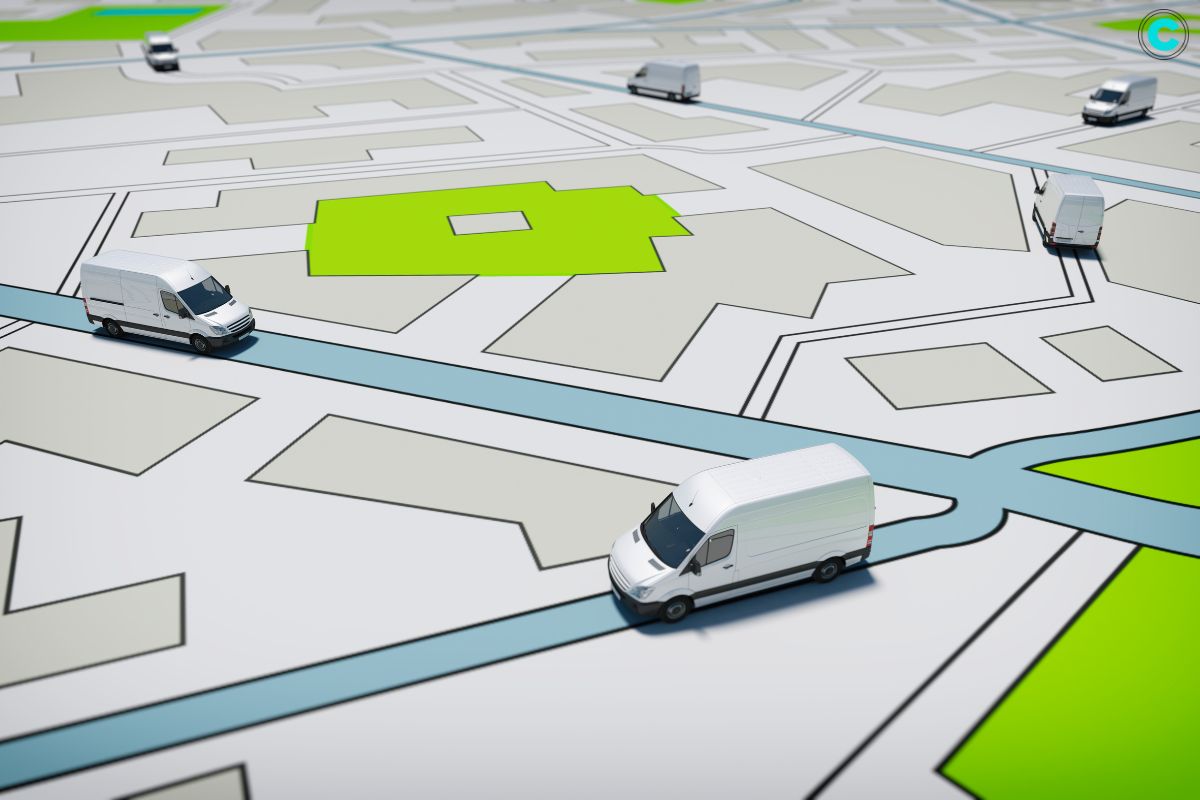In today’s world, where technology plays a pivotal role in every aspect of our lives, ensuring the safety and efficiency of our vehicles has never been more critical. Vehicle GPS trackers have emerged as indispensable tools for both individual car owners and businesses managing fleets. These devices offer real-time location tracking, enhance security, and optimize vehicle performance.
Whether you’re worried about car theft or looking to streamline your fleet operations, understanding how these trackers work and their myriad benefits can be a game-changer. This comprehensive guide will walk you through everything you need to know about vehicle GPS trackers, helping you make an informed decision to safeguard your assets and improve efficiency.
What is a Vehicle GPS Tracker?
It is a device that uses Global Positioning System (GPS) technology to determine and record the location of a vehicle. This information can be accessed in real-time, providing precise location data and other valuable insights.
How Do These Trackers Work?
1. GPS Technology Basics
These trackers rely on satellites to triangulate the exact location of the device. These satellites send signals to the GPS tracker, which then calculates its position based on the time it takes for the signals to arrive.
2. Data Transmission Methods
Once the GPS tracker determines its location, it transmits this data to a server using cellular networks or satellite communication. This data can then be accessed by users through various platforms, including smartphones and computers.
Types of Vehicle GPS Trackers
1. Hardwired GPS Trackers
Hardwired GPS trackers are installed directly into the vehicle’s electrical system. They offer a permanent solution and are ideal for fleet management.
2. Plug-and-Play GPS Trackers
Plug-and-play GPS trackers connect to the vehicle’s OBD-II port. They are easy to install and remove, making them suitable for personal use or temporary tracking needs.
3. Battery-Powered GPS Trackers
Battery-powered GPS trackers are portable and do not require any installation. They are perfect for situations where a temporary tracking solution is needed.
Benefits of Using These Trackers
1. Enhanced Security
These trackers significantly enhance security by providing real-time location updates, which can aid in the recovery of stolen vehicles.
2. Improved Fleet Management
For businesses, GPS trackers offer invaluable insights into vehicle usage, helping optimize routes, reduce fuel consumption, and improve overall fleet efficiency.
3. Cost Savings
By improving route planning and reducing idle time, these trackers can lead to significant cost savings in fuel and maintenance.
Top Features to Look for in a Vehicle GPS Tracker

1. Real-Time Tracking
Real-time tracking allows you to monitor your vehicle’s location instantly, providing peace of mind and quick response in case of theft.
2. Geofencing
Geofencing lets you set predefined areas on a map. If the vehicle enters or exits these areas, you receive an alert, enhancing security and monitoring capabilities.
3. Speed Alerts
Speed alerts notify you if the vehicle exceeds a specified speed limit, promoting safe driving habits and reducing the risk of accidents.
4. Historical Data
Access to historical data allows you to review past routes and driving behavior, providing insights for improving efficiency and security.
How to Choose the Right Tracker?
1. Assessing Your Needs
Determine whether you need a tracker for personal use or fleet management. This will influence the type of tracker and features you require.
2. Comparing Features and Prices
Compare different models based on their features, reliability, and cost. Ensure the tracker meets your specific requirements and budget.
Installation Process
1. DIY vs. Professional Installation
While some GPS trackers are easy to install yourself, others may require professional installation to ensure optimal performance.
Step-by-Step Installation Guide
- Choose the installation location.
- Mount the device securely.
- Connect the power supply.
- Test the device to ensure it’s working correctly.
Vehicle GPS Trackers and Privacy Concerns
1. Data Security Measures
Modern GPS trackers come with robust data security measures to protect your information from unauthorized access.
2. Legal Considerations
Ensure you comply with local laws regarding the use of GPS trackers, especially when tracking vehicles that are not your own.
Case Studies: Real-World Applications of Vehicle GPS Trackers

1. Fleet Management Success Stories
Many businesses have reported improved efficiency and cost savings after implementing GPS tracking for their fleets.
2. Personal Vehicle Recovery Stories
Individuals have successfully recovered stolen vehicles thanks to real-time tracking and alert features.
Common Myths About Vehicle GPS Trackers
1. GPS Trackers Drain Car Battery
Modern GPS trackers are designed to have minimal impact on your vehicle’s battery life.
2. GPS Trackers Are Only for Large Fleets
GPS trackers are beneficial for both personal vehicles and small fleets, providing security and monitoring advantages regardless of the number of vehicles.
Future Trends in Vehicle GPS Tracking Technology
1. Integration with IoT
The integration of GPS trackers with the Internet of Things (IoT) is set to enhance connectivity and data sharing across multiple platforms.
2. Advancements in Real-Time Data Processing

Ongoing advancements in data processing will lead to even more accurate and timely location information.
FAQs
1. How accurate are vehicle GPS trackers?
Most of these trackers offer accuracy within a few meters, ensuring reliable location data.
2. Can a GPS tracker be detected?
While it is possible to detect a GPS tracker, modern devices are designed to be discreet and difficult to find.
3. Do GPS trackers work in remote areas?
Yes, as long as there is satellite visibility and cellular network coverage, GPS trackers can function in remote areas.
4. How much does a vehicle GPS tracker cost?
The cost of a vehicle GPS tracker can vary widely based on features and brand, ranging from $50 to several hundred dollars.
5. Can I track my vehicle using my smartphone?
Yes, most modern GPS trackers come with mobile apps that allow you to track your vehicle in real-time using your smartphone.
Conclusion
These trackers are not just gadgets; they are essential tools for modern-day vehicle management. From enhancing security and providing peace of mind to offering detailed insights that can lead to significant cost savings, the advantages of these devices are manifold. Whether you’re a business owner looking to optimize fleet operations or an individual seeking added security for your personal vehicle, a GPS tracker is a worthy investment. As technology continues to advance, the capabilities of these trackers will only expand, making them even more indispensable. Equip yourself with a vehicle GPS tracker and take control of your vehicle’s security and efficiency today.
Also Read: Cyber Pro Magazine





